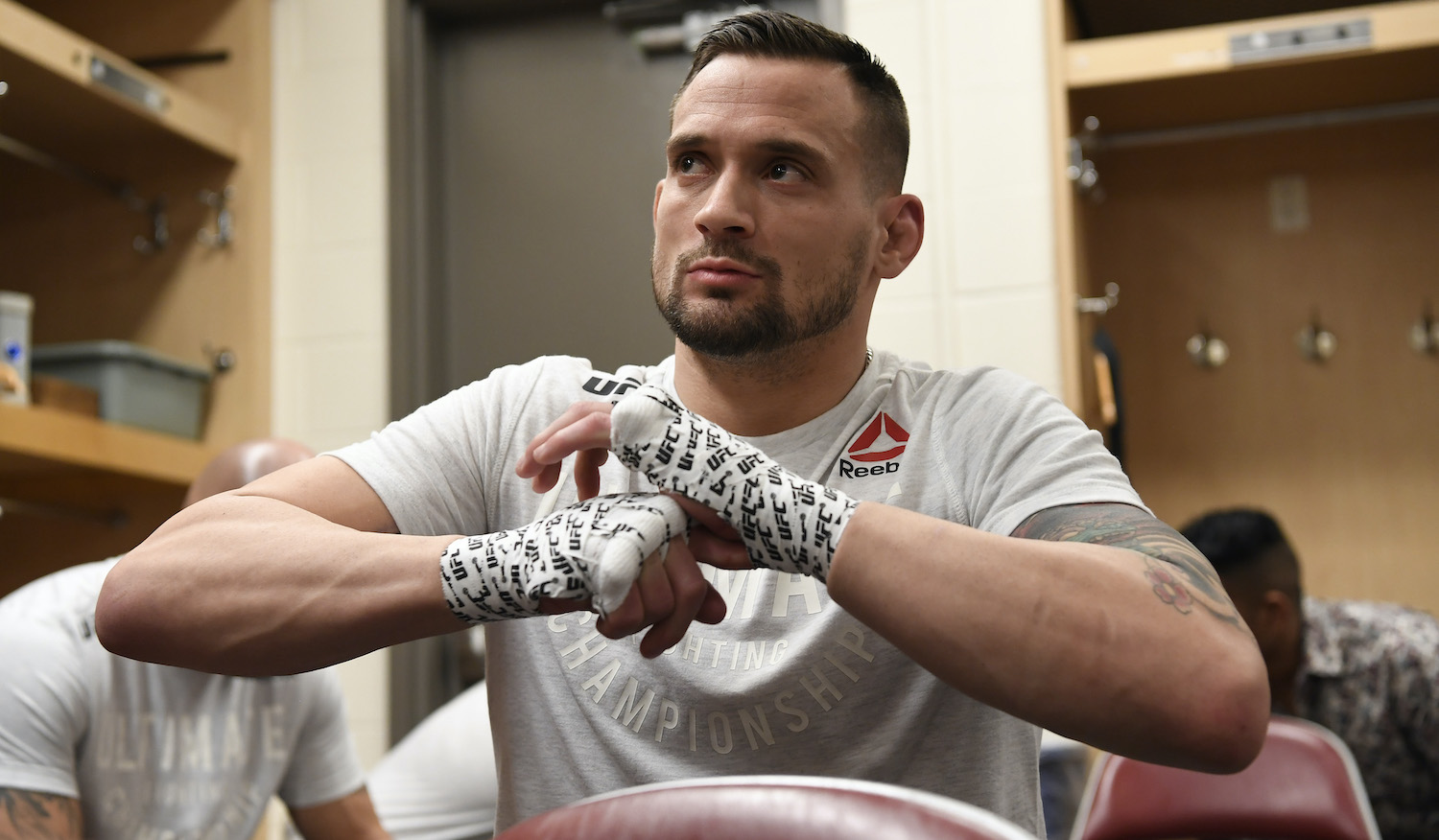Thirty seconds into his fight with Shayilan Nuerdanbieke at UFC Vegas 64 held on Nov. 5, Darrick Minner threw a front kick with his left leg and instantly recoiled in pain, before he immediately threw a second kick with the same leg. Nuerdanbieke pressed forward at his visibly hampered opponent and won by TKO at 1:07 in the first round. Reports in the immediate wake of the loss and the weeks to come established that the MMA betting world had learned of Minner's knee injury beforehand and bet hard enough to swing the lines and draw the attention of regulators. One month later, the bulk of that attention has centered on Minner's coach, James Krause.
The day after the fight, ESPN reported that a betting integrity firm had opened an investigation into the fight after sportsbooks based in multiple states and Canadian provinces noticed that bettors inundated them with numerous bets on Nuerdanbieke to win in the first round, to the point that the line shifted from -220 to -420 within hours. Two weeks later, New Jersey regulators announced that they'd no longer be accepting bets on any fights involving Krause as a fighter, promoter, trainer, or coach. The Nevada State Athletic Commission announced a plan to punish Minner for failing to disclose his injury before the fight. After winning a fight that same day, Miles Johns inadvertently broke the news that Krause had been suspended by the UFC the night before.
I think Miles Johns just suggested that James Krause got suspended: "My coach last night at the dinner table got pulled and they said the UFC was suspending him" #UFCVegas65 pic.twitter.com/22iS0EAJlR
— Shakiel Mahjouri (@Shak_Fu) November 19, 2022
On Dec. 1, the governments of Alberta and Ontario announced a ban on all UFC bets. The UFC then confirmed this past Friday that the NSAC had suspended Krause's license in the process of conducting an investigation into Minner's loss, while also announcing that Minner had been released. The promotion also stated "fighters who choose to continue to be coached by Krause or who continue to train in his gym, will not be permitted to participate in UFC events pending the outcome of the aforementioned government investigations." Missouri-based MMA promotion Fighting Alliance Championship said that the trio of Krause-trained fighters scheduled to fight this Friday would not be allowed to compete, while also claiming that Krause was "in no way, shape or form involved in the event," which had been branded as "James Krause’s FAC 17."
Krause, a recently retired UFC veteran who last fought for the promotion in October 2020, has since taken to coaching several fighters, including former UFC flyweight champion Brandon Moreno and former title challenger Megan Anderson (though their working relationship has ended under somewhat explosive circumstances), through his gym Glory MMA. He is a profligate gambler who hosts a betting-centric podcast and ran a Discord server dedicated to betting on fights, though has since pulled the Discord server and his show's YouTube channel. If it seems like a blatant contradiction that someone with such a direct hand in manufacturing the outcome of fights would be allowed to bet on the results of those fights, well, the UFC finally agrees with you. After the promotion allowed this sort of thing for years—a loophole that led to grim headlines like "UFC Fighter Who Bet and Lost on Himself Gets Cut on His Birthday"—UFC Chief Business Officer Hunter Campbell sent a memo to the roster in October announcing that "fighters, training teams, family members, and others that have access to inside information" would no longer be allowed to gamble on fights.
For years, this practice has been out in the open. Combat sports of all kinds have had a long, symbiotic, and often illegal association with gambling concerns. Krause's enthusiastic gambling habit was not distinct for its existence, but his brazenness. In the Aug. 1 MMA Hour interview where he announced his retirement, Krause said he made more from gambling than he did from coaching, and he talked about how he would get around regulators' limits on how many bets he could place by getting members of his Discord to give him access to their accounts.
Krause's claim inadvertently reveals the conditions to create a scandal like this. UFC fighters are not unionized, get only a 16 percent revenue cut as of 2019, and don't have real healthcare. If a fighter on the fringes of the roster only makes $22,000 for appearing in a fight, that is not nearly enough to stop them from taking a dive and earning more money doing so.
Fights don't even have to be fixed in such a deliberate way for insiders to figure out who's going to win. An ESPN report on the subject found several fighters and coaches who said that not disclosing injuries before a fight is common practice, since an injury that could have plausibly happened during a fight is covered by the UFC's meager post-fight insurance. Sometimes, those injuries can actually be hidden, like in the case of T.J. Dillashaw before his title fight at UFC 280, though the professional MMA community is not that large, and clearly actionable inside information can get out.
MMA insiders told ESPN that the new UFC rules against gambling on fights probably won't stamp out the practice, but merely drive it underground. That makes sense, given that fighters are still screwed by management. Krause fell under scrutiny because he made no effort to be sly. It seems impossible that he was the only person doing this.






